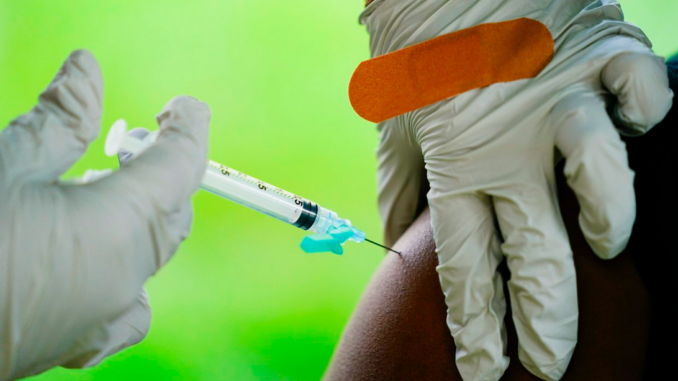
A peer-reviewed study reveals that Covid mRNA vaccines drastically reduce mucosal IgA antibodies to nearly undetectable levels, weakening immune defenses and massively increasing vulnerability to Covid-19 and thousands of other diseases.
According to virologists, mucosal IgA antibodies, especially those targeting the receptor binding domain (RBD) of the virus, play a fundamental role in the immune system’s ability to prevent respiratory infections.
These antibodies act as a “first line of defense,” blocking viral entry at cell receptors, thereby reducing infection risk. However, recent research suggests that after mRNA vaccination, the levels of these critical IgA antibodies are decimated.

BYPASS THE CENSORS
Sign up to get unfiltered news delivered straight to your inbox.
Latest Video
In a major peer-reviewed study published in Nature, researchers observed that after the second dose of the Covid vaccine, participants showed a dramatic drop in mucosal IgA antibodies to nearly undetectable levels.
Titled Systemic and mucosal IgA responses are variably induced in response to SARS-CoV-2 mRNA vaccination and are associated with protection against subsequent infection, the peer-reviewed paper demonstrated that the vaccines do not boost mucosal immunity, which is essential for preventing viral entry at infection sites.

A follow-up study published on April 23, 2024, Serum and Salivary IgG and IgA Response After COVID-19 Messenger RNA Vaccination, provided further insight. Though it did not analyze receptor-binding domain (RBD) antibodies or absolute IgA levels—which are critical measures for infection prevention—the study confirmed that Pfizer’s vaccine had minimal effect on maintaining or increasing IgA levels.
This finding points to a concerning drop in immune protection at the mucosal level after vaccination. The data reveal that this decline continued well beyond the initial, short-lived antibody surge that was supposed to offer lasting protection. Instead of sustained immunity, the vaccine’s effects on mucosal antibodies appear to weaken over time, leaving individuals more vulnerable to disease than expected.
The implications are stark: rather than bolstering immunity, the vaccine appeared to leave individuals more vulnerable, to Covid and a host of deadly diseases, with antibody levels reportedly dipping far below pre-vaccine baselines.
 Compare the baseline to the post-dose 2 results. Notice how most of the data points fall below the dashed line? That line represents “immeasurable” levels. Essentially, any immune protection you had before the vaccine was effectively wiped out by the COVID shots.
Compare the baseline to the post-dose 2 results. Notice how most of the data points fall below the dashed line? That line represents “immeasurable” levels. Essentially, any immune protection you had before the vaccine was effectively wiped out by the COVID shots.Does this explain the surge in excess deaths, rare cancers, and autoimmune diseases experienced in vaccinated countries around the world?
A related study from 2024 further analyzed antibody responses following Covid vaccination. While not focusing on RBD IgA levels, it echoed findings that mRNA vaccines did not maintain IgA response in a way that could consistently prevent infection.
The research suggests that those who had natural infection without vaccination displayed higher sustained levels of IgA antibodies, potentially granting better protection than vaccinated individuals. This discovery challenges assumptions about the vaccine’s effectiveness in preventing infection.
Moreover, some critics allege that clinical trials lied about vaccine efficacy, sparking calls for further investigation into claims of “95% efficacy” against infection.
Source link

